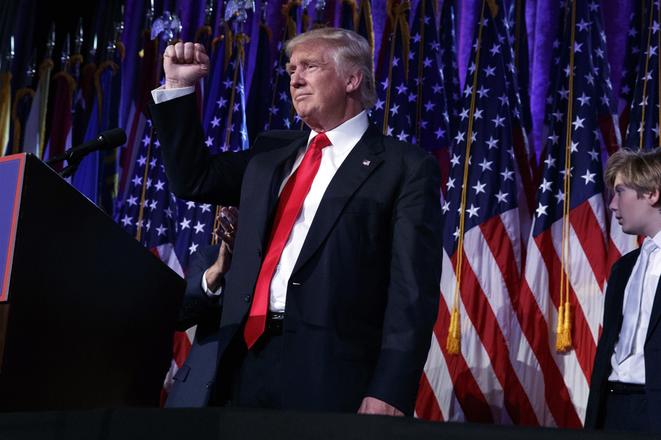Lower taxes, less red tape, the return home of US companies from Europe leading to the creation of new jobs. This is what US President Donald Trump promised, among other things, during his campaign.
And he has already started fulfilling these pledges. He announced his plans to reduce corporate tax from the current 35 percent to somewhere between 15 and 20 percent after meeting with American companies. He also wants to massively reduce regulation.
The withdrawal of U. S. Steel
Any rules that the new American administration will set in this sphere may well have an influence on several US companies operating in Slovakia. Apart from U.S.Steel based in Košice, there is also for example, Johnson Controls, Boeing Aviation with its client centre in Bratislava, IBM and AT&T.
These companies employ thousands of Slovak people. The hottest candidate for leaving the country is U.S.Steel. However, its withdrawal has been a matter of speculation for a long time, although Trump could speed up the process. U.S.Steel employs about 10,000 people in Košice.
The Americans are currently holding closed negotiations over the sale of the Košice. plant with the Chinese Group He-Steel, according to the local Korzár daily. They could get about 1.5 billion dollars (i.e. about €1.4 billion) from the sale, the daily wrote.
“For Slovakia, domestic politics in Europe are a bigger threat than US politics,” commented analyst Boris Tomčiak of the Finlord company.
“The Chinese management will very probably try to change the structure of production,” Tomčiak said. “Primary production is, even after expenses are included, cheaper in China, and so it would be economically more advantageous to change the Košice steelworks into a specialised firm that would focus only on more complex products,” the analyst concluded.
Such a change would probably mean massive layoffs. Korzár estimates about 2,000 people, but Sme sources mention 3,000 to 5,000 people.
The US firms in Slovakia, addressed by Sme, did not comment on the issue of potentially leaving the country. The American Chamber of Commerce has no official information so far, either. “At this stage, I consider any notion of the potential effects on the Slovak economy premature,” Michal Krčméry of the chamber said..
Rather, indirect impact
Analysts do predict that Trump’s measures will have an indirect impact on the Slovak economy: the companies already functioning here will not leave but new investments will probably not be directed to Europe. “Multi-national car producers will build plants in the US and not in central Europe, Tomčiak says. “An example is Volkswagen, which will build assembly plants in the US.”
According to him, this will also draw sub-contractors and logistic companies to the US – which might otherwise have operated from Slovakia. However, he considers that it will rather be the situation in western Europe – i.e. in countries like Germany or France – that could that have a more significant influence on Slovakia.
In both these countries, there will be parliamentary elections this year, and the new parliaments could adopt measures against the US, which will also be unfavourable for Slovakia. Similarly as with the US, they too could come up with a considerable cut in corporate taxes, Tomčiak foresees.
Another threat is the potential adoption of a mere 9-percent tax on profit for firms in Hungary. Budapest wants to lure companies that would leave London after Brexit.



 Donald Trump (source: AP/SITA)
Donald Trump (source: AP/SITA)